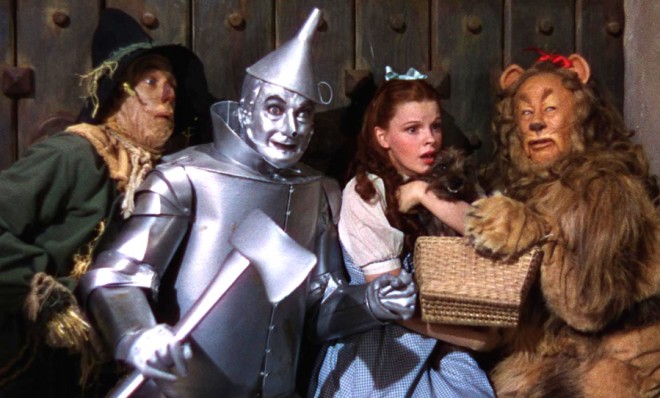This scathing 1939 review is the worst critique of The Wizard of Oz on record
Apparently, no film is truly "universally beloved"


A free daily email with the biggest news stories of the day – and the best features from TheWeek.com
You are now subscribed
Your newsletter sign-up was successful
Heading into the 3D re-release of The Wizard of Oz this weekend, you might not be surprised to hear that the universally beloved classic is sitting at an almost-perfect 99 percent positive reviews on aggregator Rotten Tomatoes. But why not 100 percent? Blame The New Republic's Otis Ferguson, who wrote an absolutely scathing review of The Wizard of Oz in 1939, just a month after the film's splashy Hollywood premiere at Graumann's Chinese Theatre.
How could any critic find fault with such a beloved film? Behold:
The Wizard of Oz was intended to hit the same audience as Snow White, and won't fail for lack of trying. It has dwarfs, music, technicolor, freak characters, and Judy Garland. It can't be expected to have a sense of humor as well — and as for the light touch of fantasy, it weighs like a pound of fruitcake soaking wet. Children will not object to it, especially as it is a thing of many interesting gadgets; but it will be delightful for children mostly to their mothers, and any kid tall enough to reach up to a ticket window will be found at the Tarzan film down the street. The story of course has some lovely and wild ideas—men of straw and tin, a cowardly lion, a wizard who isn't a very good wizard — but the picture doesn't know what to do with them, except to be painfully literal and elaborate about everything... [The New Republic]
Other critics of the era were much, much kinder to The Wizard of Oz. (In one telling August 1939 review, The New York Times' Frank S. Nugent declared the film "so well-intentioned, so genial, and so gay that any reviewer who would look down his nose at the fun-making should be spanked and sent off, supperless, to bed.") Indeed, Ferguson's take on The Wizard of Oz remains the film's only negative review on Rotten Tomatoes, keeping it from the coveted 100 percent approval rating earned by fellow classics like Citizen Kane and The Godfather.
The Week
Escape your echo chamber. Get the facts behind the news, plus analysis from multiple perspectives.

Sign up for The Week's Free Newsletters
From our morning news briefing to a weekly Good News Newsletter, get the best of The Week delivered directly to your inbox.
From our morning news briefing to a weekly Good News Newsletter, get the best of The Week delivered directly to your inbox.
Unfortunately, we'll never know if Ferguson would ever have re-appraised The Wizard of Oz — he died in action in World War II just four years after his review was published. (The New Republic does maintain a fascinating partial collection of Ferguson's film reviews, which include his takes on classics like 1938's Snow White and the Seven Dwarfs, 1939's Mr. Smith Goes to Washington, and 1940's Gone With the Wind.) But as it stands, Ferguson's review is a testament to the fact that no film, no matter how great, can truly be called "universally acclaimed."
A free daily email with the biggest news stories of the day – and the best features from TheWeek.com
Scott Meslow is the entertainment editor for TheWeek.com. He has written about film and television at publications including The Atlantic, POLITICO Magazine, and Vulture.
-
 The 8 best TV shows of the 1960s
The 8 best TV shows of the 1960sThe standout shows of this decade take viewers from outer space to the Wild West
-
 Microdramas are booming
Microdramas are boomingUnder the radar Scroll to watch a whole movie
-
 The Olympic timekeepers keeping the Games on track
The Olympic timekeepers keeping the Games on trackUnder the Radar Swiss watchmaking giant Omega has been at the finish line of every Olympic Games for nearly 100 years
